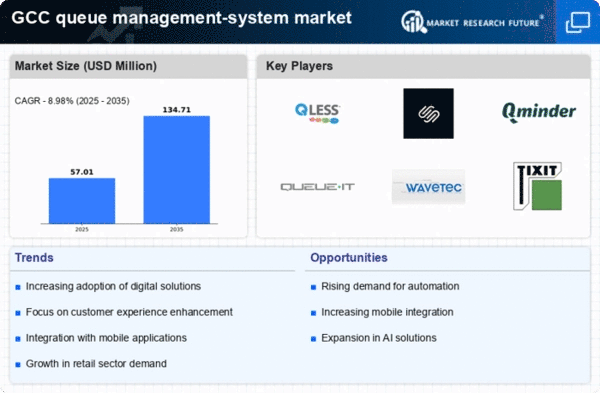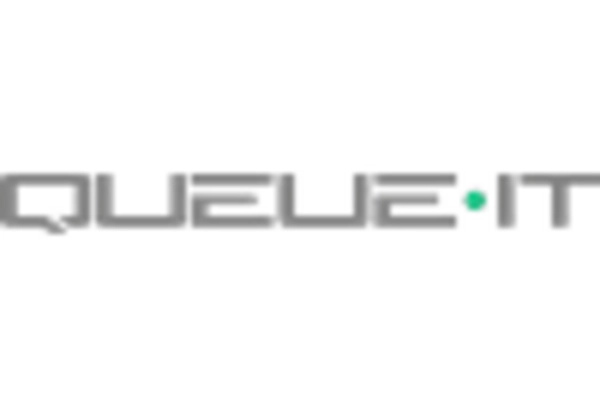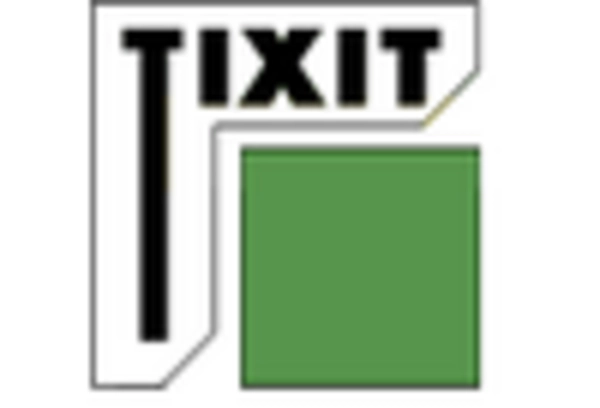Increased Competition in Service Industries
Increased competition within service industries is significantly impacting the queue management-system market. As businesses strive to attract and retain customers, the need for efficient queue management has become paramount. In the GCC, sectors such as retail, banking, and hospitality are experiencing heightened competition, leading to a greater emphasis on operational efficiency and customer satisfaction. Companies are investing in advanced queue management systems to reduce wait times and enhance service quality. Market analysis suggests that the queue management-system market could grow by 10% annually as businesses seek to gain a competitive edge through improved customer service. This competitive landscape is likely to drive innovation and further advancements in queue management technologies.
Growing Focus on Customer-Centric Strategies
The queue management-system market is witnessing a growing focus on customer-centric strategies among businesses in the GCC. Organizations are increasingly recognizing the importance of enhancing customer experience as a key driver of loyalty and retention. This shift is prompting the adoption of sophisticated queue management systems that allow for personalized service and efficient customer flow. Data indicates that businesses implementing these systems can see a 20% increase in customer satisfaction scores. As companies strive to differentiate themselves in a competitive landscape, the queue management-system market is expected to expand, driven by the need for tailored customer experiences and improved service delivery.
Rising Demand for Efficient Service Delivery
The queue management-system market is experiencing a notable surge in demand for efficient service delivery across various sectors in the GCC. As businesses strive to enhance customer satisfaction, the implementation of advanced queue management systems has become essential. This trend is particularly evident in sectors such as retail and healthcare, where long wait times can lead to customer dissatisfaction. According to recent data, the market is projected to grow at a CAGR of 12% from 2025 to 2030, driven by the need for streamlined operations. Organizations are increasingly recognizing that effective queue management not only improves customer experience but also optimizes resource allocation, thereby enhancing overall operational efficiency. Consequently, the queue management-system market is poised for significant growth as businesses prioritize service delivery improvements.
Technological Advancements in Queue Management
Technological advancements are playing a pivotal role in shaping the queue management-system market. Innovations such as mobile applications, cloud-based solutions, and real-time analytics are transforming how businesses manage customer flow. In the GCC, the integration of these technologies is becoming increasingly prevalent, allowing organizations to monitor and manage queues more effectively. For instance, the adoption of mobile ticketing systems has been shown to reduce wait times by up to 30%, significantly enhancing customer satisfaction. Furthermore, the queue management-system market is expected to reach a valuation of $500 million by 2027, reflecting the growing reliance on technology to improve service efficiency. As businesses continue to invest in these advancements, the market is likely to witness sustained growth.
Government Initiatives Supporting Digital Transformation
Government initiatives aimed at promoting digital transformation are significantly influencing the queue management-system market. In the GCC, various governments are actively encouraging businesses to adopt digital solutions to enhance service delivery and operational efficiency. For example, initiatives such as the UAE's Vision 2021 aim to create a smart and sustainable economy, which includes the implementation of advanced queue management systems. This support is expected to drive market growth, with estimates suggesting a potential increase in market size by 15% over the next five years. As public and private sectors align with these initiatives, the queue management-system market is likely to benefit from increased investments and a broader adoption of digital solutions.
















